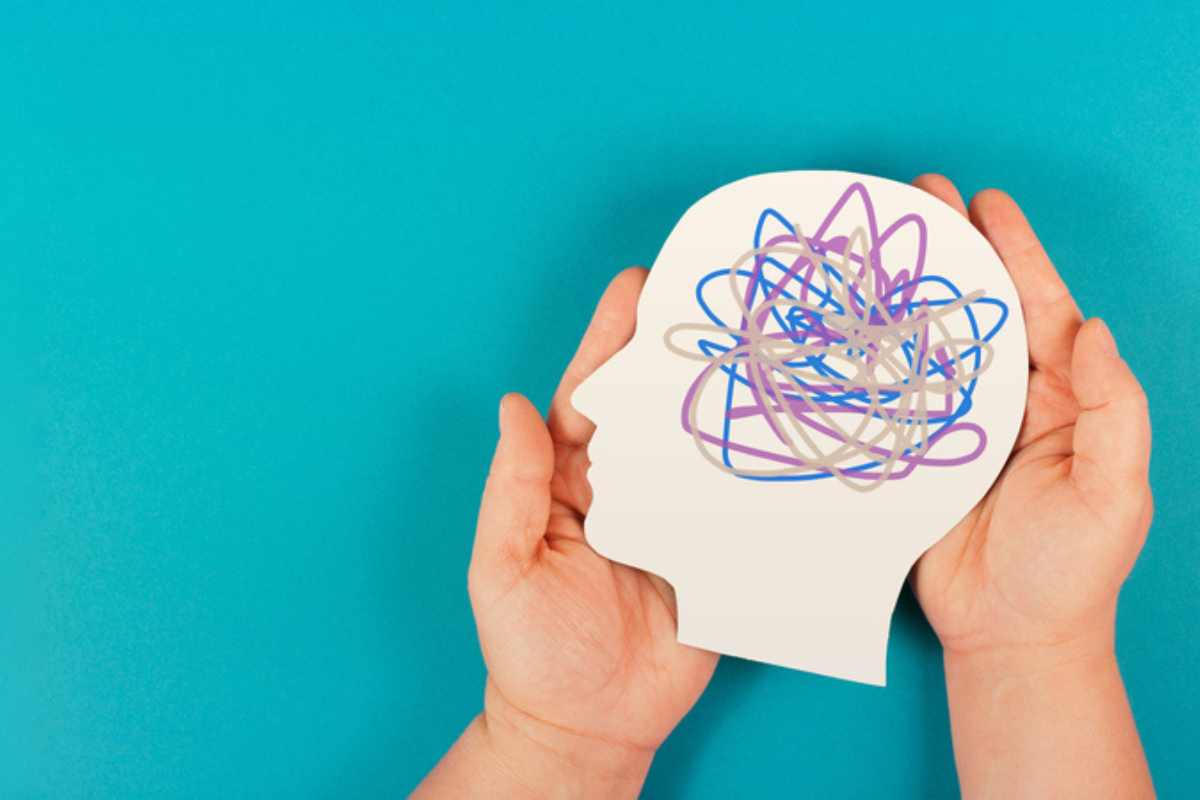
Perinatal and Postpartum Treatment
in Houston, TX and Online
This Isn't What You Expected
Pregnancy and childbirth leads to significant depression and anxiety symptoms in up to 20% of women. You are not alone and this is not your fault.

Sometimes Motherhood Isn’t What You Expected
No matter who you are or how you prepare yourself, having a child involves a lot of variables that can hit you by surprise. Pregnancy and postpartum women’s issues are incredibly common, so much so that their significance is often overlooked. In fact, 1 in 7 women experience depression during pregnancy. When we feel exhausted, anxious, overwhelmed, or disconnected, we look at those feelings as if there is something wrong with us. We criticize ourselves for not being happier or more grateful. We bottle our emotions and pretend that everything is okay even though we are worn down inside. And we blame ourselves for not “being better,” all the while never understanding where that pain and self-doubt is coming from. Fortunately, at Eddins Counseling in Houston, TX we can help you understand that you, as a new or expectant mother, are enough just the way you are, and what you are experiencing isn’t your fault. With our support, you can learn to improve your self-esteem, cope with daily life and overwhelming thoughts and feelings, strengthen your relationships, and overcome future challenges with greater flexibility and resilience.


Having A Child Can Be A Naturally Intense Experience
As mothers, we are called upon to sacrifice everything for our children’s needs while simultaneously remaining attractive, upbeat, and unfazed by all the demands. We are expected to stay physically fit, work a job, orchestrate birthday parties, cook meals, and look happy while doing it all. Then there’s the perceived expectation that we can be nothing but grateful—not worn out, scared, and certainly not angry or resentful. So when we feel anything less than blessed for having a child, we end up dealing with a lot of guilt, shame, sadness, and stress. But the reality is, being a mother is possibly the toughest, most selfless job on the planet. And with that great responsibility comes a tremendous amount of pressure to fulfill other cultural stereotypes. The notion of the glowing pregnant mother and the Pinterest mom who is always on top of things only adds to the natural insecurity and fear that comes with having a child. Mood swings and self-esteem issues—just to name a few—are all very common reactions to starting a family.


“I Don’t Feel Like Myself”
The truth is, a majority of women experience at least some distress during or after their pregnancy. Some of it due to hormone levels or changes, which subsides over time. 15-20% of women experience more serious mental health distress related to postpartum and perinatal mood or anxiety disorders, such as postpartum anxiety, postpartum depression, or postpartum obsessive compulsive disorder (OCD). Symptoms can appear up to 12 months after childbirth. See our frequently asked questions about postpartum treatment to learn more about pregnancy and postpartum symptoms. You may be confused by how you are feeling and wonder if this is your new normal or if you’ll ever go back to feeling the way you used to. It can feel disappointing, scary and overwhelming to experience postpartum mood issues or maternal depression. Unfortunately, many of us have been conditioned to expect that we can handle it all and blame ourselves instead of recognizing the warning signs and asking for support when we need it. At Eddins Counseling, we want you to know that what you are experiencing is real. The pain, the fear, the cycle of negative thoughts, or the disconnection you may be feeling is valid. But you don’t have to let it determine what kind of mother you can be. With postpartum counseling and support you can understand and overcome peri or postpartum mood changes so that you can bond with your baby while building a better relationship with yourself and breaking negative thought patterns.
Treatment for Postpartum Depression & Anxiety
Most women experience mood changes after giving birth. These are commonly referred to as the baby blues and generally resolve on their own 2-3 weeks after delivery. If any of your symptoms last more than two weeks, you should reach out for help. Pregnancy and postpartum therapy gives you a safe, compassionate space in which to find your voice, express your thoughts and feelings (even the scary ones), and have your experiences validated by someone who genuinely cares and understands. Together, we can work on identifying and meeting your specific needs while developing personalized strategies for overcoming your emotional, mental or physical symptoms. In time, you can awaken a new relationship with yourself that enables you to be more connected and flexible with your partner, your child, and your own feelings. At Eddins Counseling, we understand that trying to conceive a child, being pregnant, or caring for a young one comes with its own unique set of challenges. Even after the postpartum period ends, motherhood brings its own challenges as your child moves through different stages. And while feeling stressed or overwhelmed as a mother isn’t a psychological diagnosis in the same way as postpartum depression or anxiety, it may still be affecting your happiness and wellbeing. That’s why we offer a structured yet individualized program that gets to the core of your stress. Once we know what is driving the problem, we can create a treatment plan that is tailored to your specific needs.


Pregnancy and Postpartum Therapy FAQ's
Perinatal refers to the time period from pregnancy to one year after the birth of your child.
Maternal postpartum depression is not the same as the baby blues.
How do you know whether what you are experiencing will pass or if it’s postpartum depression? For some women, the symptoms of depression began peripartum, prior to delivery and continued or increased postpartum. While it’s normal to feel overwhelmed and anxious, if it impacts your daily functioning and ability to care for yourself or your baby, it’s important to reach out for support.
Common (not all) postpartum depression symptoms include:
- Lasts longer than 2-3 weeks after delivery or
- You feel tired all the time
- You are unable to sleep when the baby is sleeping (even though you are so tired)
- You criticize yourself and compare yourself frequently to others
- Your mind races with thoughts and worries
- You cry more often than you usually do
- Feelings of worthlessness, shame, guilt or inadequacy
- You feel sad or feel depressed most days
- You are not bonding with the baby or feel anxiety about the baby or a lack of interest
- You think sometimes that it would be better if you were not here
If you identify with any of these symptoms of postpartum depression it’s important to reach out for help and support to start treating postpartum depression as soon as you can. The sooner you reach out for help, the quicker and easier recovery can be.
Risk factors for developing postpartum depression include a history of depression or major depression disorder.
If any of your symptoms last more than two weeks, you should reach out for help.
Some women develop anxiety during pregnancy or postpartum. While some anxiety is normal during pregnancy and postpartum, anxiety that is persistent can be debilitating.
Pregnancy & postpartum anxiety (PPA) symptoms include:
- Constant worry
- Feeling that something bad is going to happen
- Racing thoughts
- Inability to sit still
- Physical symptoms like dizziness, hot flashes, blurry vision or nausea
- Postpartum panic disorder includes shortness of breath, dizziness, chest pain, heart palpitations, and numbness and tingling in fingers or toes.
For many, these symptoms can seem to come out of the blue and you may have never experienced OCD prior. It’s important to keep in mind that this is an anxiety symptom. If you experience these symptoms, they may feel so scary you don’t tell anyone.
It’s important to recognize that obsessive thoughts or compulsions are unwanted and treatable. Discussing your symptoms with a licensed professional in a confidential setting can help you get the diagnosis and treatment you need to feel better.
Signs of postpartum OCD include:
- Scary, disturbing, unwanted thoughts of hurting your baby or something bad happening to your baby – obsessions
- Worry that you will be responsible for something bad happening to your child
- Avoiding things out of fear of harm to your baby
- Doing something over and over to reduce your fear or worry – compulsions
- Postpartum Post-Traumatic Stress Disorder (PPTSD) – can be caused by a frightening childbirth or trauma.
- Peripartum or Postpartum Bipolar Disorder – bipolar mood disorders can occur for the first time during pregnancy or postpartum.
- Postpartum Psychosis – seeing or hearing voices or images that others can’t; paranoia, periods of confusion and memory loss. This is a rare condition, but very serious. Talk to your doctor and seek help immediately if you experience these symptoms.
Call your doctor, a therapist, medical professional or the National Suicide Prevention hotline if you are experiencing a crisis, or urges to hurt yourself.
National Suicide Prevention Hotline & Website:
-
1-800-273-8255
- www.suicidepreventionlifeline.org
There are multiple effective options to treat postpartum depression and anxiety. Here are some of treatments for postpartum we use to help women in our counseling office:
- Cognitive Behavioral Therapy (CBT); a research-driven intervention that is particularly useful for treatment of postpartum depression and mental health issues (modified for mothers). CBT helps eliminate negative thinking by offering more realistic, grounded expectations for your role as a mother.
- Mindfulness-based therapy; involves breathing exercises, emotion regulation techniques, and self-compassion to foster a more connected and compassionate relationship with yourself.
- Acceptance and Commitment Therapy (ACT); useful for increasing your emotional flexibility and resilience.
- Interpersonal Therapy; can help you with your social relationships, family and friends, transition to new roles, marital issues, social isolation and the demands of a new baby.
- Omega-3 Fatty Acids have been shown to be helpful in reducing perinatal depression symptoms. In fact low levels of omega-3's are associated with increased risk of postpartum depression.
- Medication Options: in cases of severe postpartum symptoms antidepressant medications may be helpful.
We understand that if you are coping with the weight of grief, the overwhelm of being pregnant, or postpartum depression or anxiety, you don’t have much time or energy to spare.
The sad truth is that the worse you feel, the harder it is to seek out therapy. However, right now is when you need help the most. Taking care of yourself now ensures that you are best prepared to take care of yourself and your baby, both now and in the future.
And to make sessions more convenient, we also offer women’s online therapy to alleviate the need for finding a sitter, driving to sessions, or taking time off from work. Whatever your situation is, we want to make life easier for you.
No amount of working harder or being “better” is going to change the way you feel; you are already doing the best you can.
What you are going through isn’t a personal flaw, it’s a legitimate disorder. It happened to you simply because you had a baby.
That’s why we want to help you recognize that it is not your fault if you are experiencing any of the negative thoughts or emotions that we have mentioned. And you don’t have to continue suffering or feeling less than your best.
Our specially trained postpartum therapists can help you cultivate practical coping skills that will enable you to reduce your symptoms, cope with daily life and feel stronger and more confident in yourself and your role as a mother.
Right now, you may be holding back a sea of powerful emotions that you feel scared to express. Postpartum treatment—whether for depression, anxiety, OCD, or another issue—gives you permission to express your pain and frustration without feeling like you are an awful person.
Everything you are experiencing is real and it has a real source. And denying those emotions just creates more guilt, inner turmoil, and ultimately, isolation.
Building a connection with a therapist gives you a true ally who will support you at every turn so that you can find immediate and long-term relief from your suffering.
Let Us Help Support Your Journey Into Motherhood
If you are struggling with postpartum issues, or the demands of motherhood, we can provide you with comfort and solutions. We invite you to call us for a free 15-minute consultation to see how our approach to counseling for women and young mothers may be able to help you. At Eddins Counseling, we understand that motherhood doesn’t always turn out to be what you expected—or hoped for. But a lot of women are going through something very similar, and you don’t have to work through this on your own. Our licensed mental health professionals are specially trained to help you re-assume control over your life. Together in talk therapy we can work on building skills for coping with daily life and difficult symptoms, reconnecting with your partner, and embracing motherhood (and the challenges it brings) with a new, healthier perspective.
Get Help From a Specialist in Perinatal and Postpartum Treatment
Alexandra Marshall
Alexandra’s focus is on helping you develop self-confidence, cope with feelings of anxiety, emotional eating, loneliness and isolation, and mana…
BOOK AN APPOINTMENTDiana Cabrera-Stewart
Diana’s specialty areas include working with mothers at any stage in their journey, as well as working with clients for whom race, culture, ethn…
BOOK AN APPOINTMENTElizabeth McCullough
Feeling overwhelmed? Teen drama? Therapist Elizabeth McCoullough is here to help! As your therapist, I guide individuals, teens, and families to…
BOOK AN APPOINTMENTVanessa Guidry
Vanessa works with teens, young adults and families. She helps with behavioral concerns, emotional stress such as anxiety, anger and depression,…
BOOK AN APPOINTMENTWhat OTHERS Are Saying
Exceptional
Exceptional! Life changing for me.



















